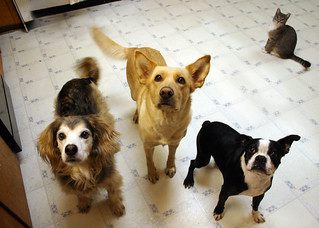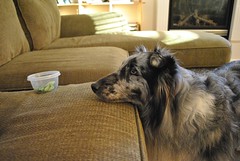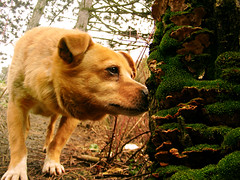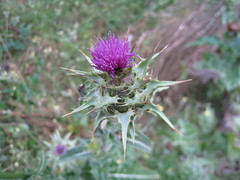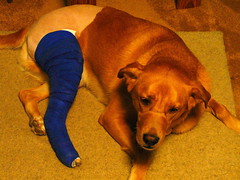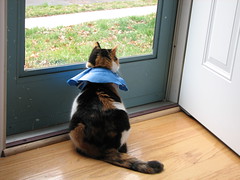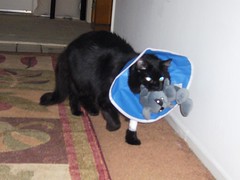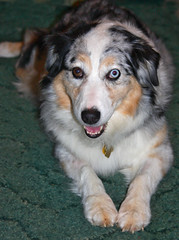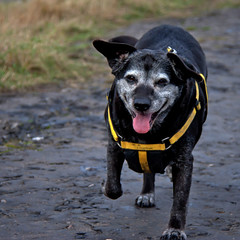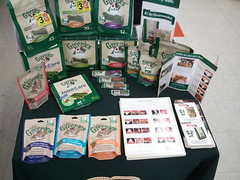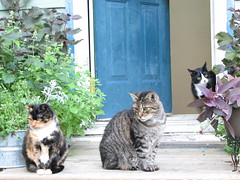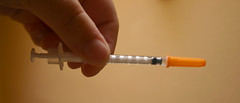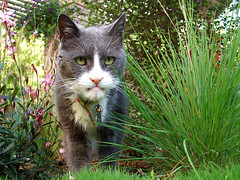How to integrate all modalities when treating cancer
Saturday, March 23rd, 2013 We learned in vet school that when you have more than one vet in the room and an animal comes in with life threatening injuries the most important thing is for someone to say “I’m in charge!”. Without this simple statement the chances of an animal making it is much less. Until someone takes control everyone assumes someone else is in charge.
We learned in vet school that when you have more than one vet in the room and an animal comes in with life threatening injuries the most important thing is for someone to say “I’m in charge!”. Without this simple statement the chances of an animal making it is much less. Until someone takes control everyone assumes someone else is in charge.
With cancer I believe it is the same thing. Someone needs to be the main person making the decisions. That can be the oncologist, the holistic vet, the general practitioner vet, or in some cases the animal’s caregiver. It doesn’t matter who it is and it does not have to be the person with the most knowledge but it has to be someone. It does not mean that everyone doesn’t work together as a team and sometimes it can shift between people as treatment goes on. Just know who it is.
When I work with animals who are not undergoing chemotherapy this is generally me. I make the final decisions on what happens with the wishes of the animals’ caregiver in mind. We get recommendations from the regular veterinarian and sometimes me and the regular veterinarian get together on the phone and put our heads together.
Because I see my cancer animals every two weeks I have a better feel of where they are at and usually a better connection with their people.
If there is an oncologist involved usually they are in charge, although often I am given free rein to add in herbals/supplements and change diet. Most oncologists don’t have herbal training but many are very open to us who do.
If you, the animal’s person are in charge you can gather information and make educated choices based on that.
Drugs and herbals do not have to be exclusive. Even in the animals I treat completely herbally I often times recommend drugs for pain or comfort issues.
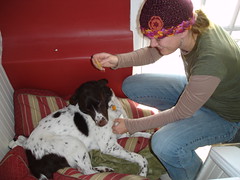 I have found that it is better to do a fewer things consistently than many treatments not consistently. Do everything you can to follow recommendations on the most important treatments.
I have found that it is better to do a fewer things consistently than many treatments not consistently. Do everything you can to follow recommendations on the most important treatments.
Don’t forget the food. Good food is so important and often I find you can add in foods that help fight cancer without having to add more pills. If you can, supplement with whole foods before pills! Sardines for omega fatty oils, sweet potato and carrots for vitamin A, cooked mushrooms for your medicinal mushrooms.
The internet is great! Hey I’m the internet aren’t I? Use it to do your homework but remember that no one knows your dog as well as you do.
Don’t follow advice that doesn’t sit well with you or your gut feels is wrong. Remember that your vet actually is seeing your dog, none of us in the cyberspace are. We all have different tools to work with. Your vet may not have the tools I use but they see your dog and know them, I don’t. If at all possible talk to your vet about what you find. You would be surprised how open many vets are to herbs and supplements especially for diseases where there is not a western treatment.
If you don’t feel like you have the support of your vet, consider finding a vet who does support your choices and who you can be open with.
There is not one right choice when it comes to cancer. We don’t have a miracle cure that always works, but we have many tools that can make it so animals can live longer better lives.
Back to integrative and holistic methods for treating cancer in cats and dogs.

